Having conversations with Canadians about why they do — or do not — get vaccinated
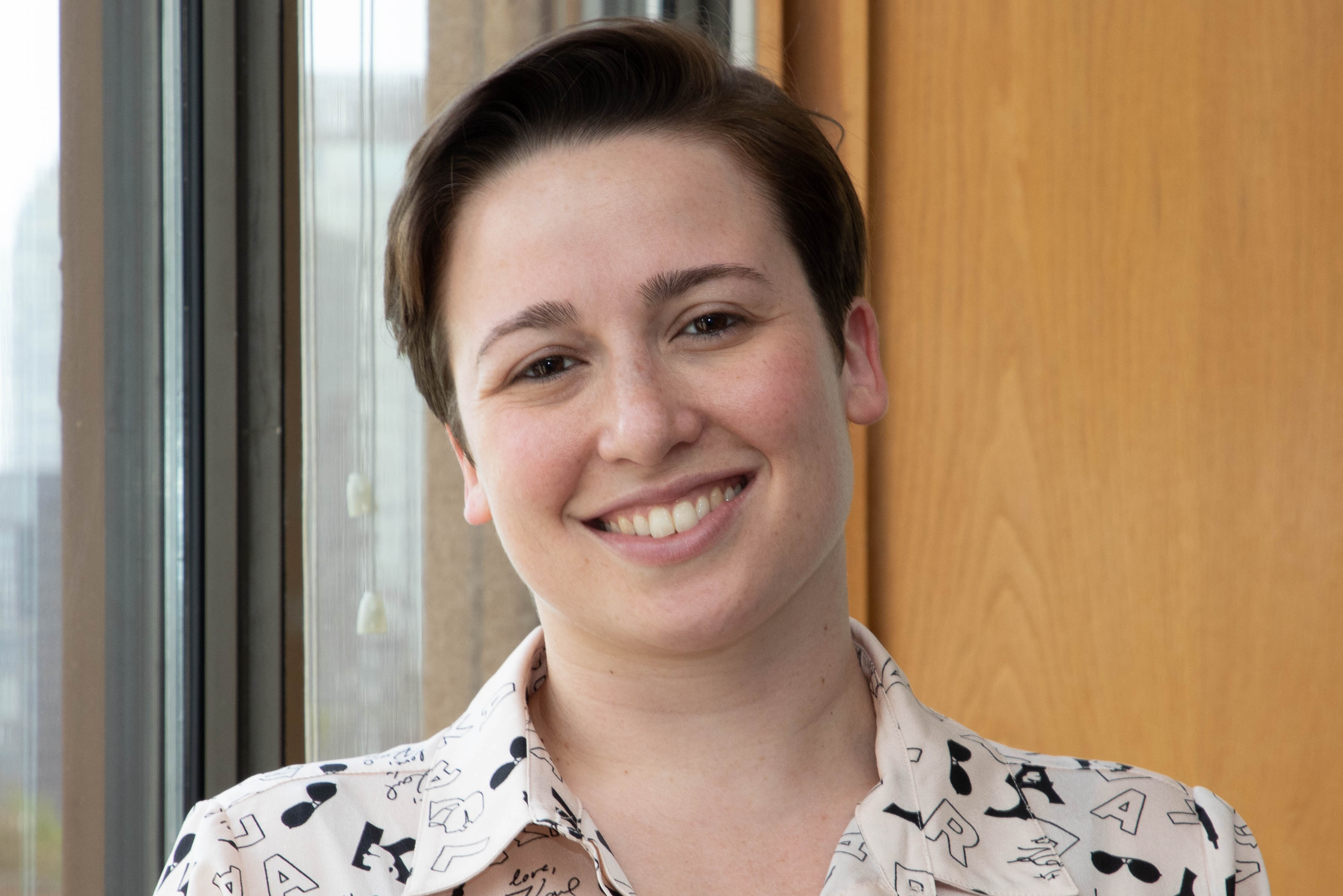
For National Immunization Awareness Week (NIAW), we spoke with CVPD member Gilla Shapiro to learn more about her research on the drivers of HPV vaccination in Canada.
“The point of this research program is to develop tools to help us better understand the drivers of HPV vaccination in parents — so understanding what influences people to get their children vaccinated or not to get vaccinated,” says Shapiro. To do that, Shapiro and other researchers around the globe are looking at the multiple factors that can influence vaccine decision making, including access barriers — a particularly timely topic as public health experts push communities around the globe to catch up on routine childhood immunizations missed during the pandemic.
Reminder: Measles Vaccines Protect Those Who Cannot Protect Themselves
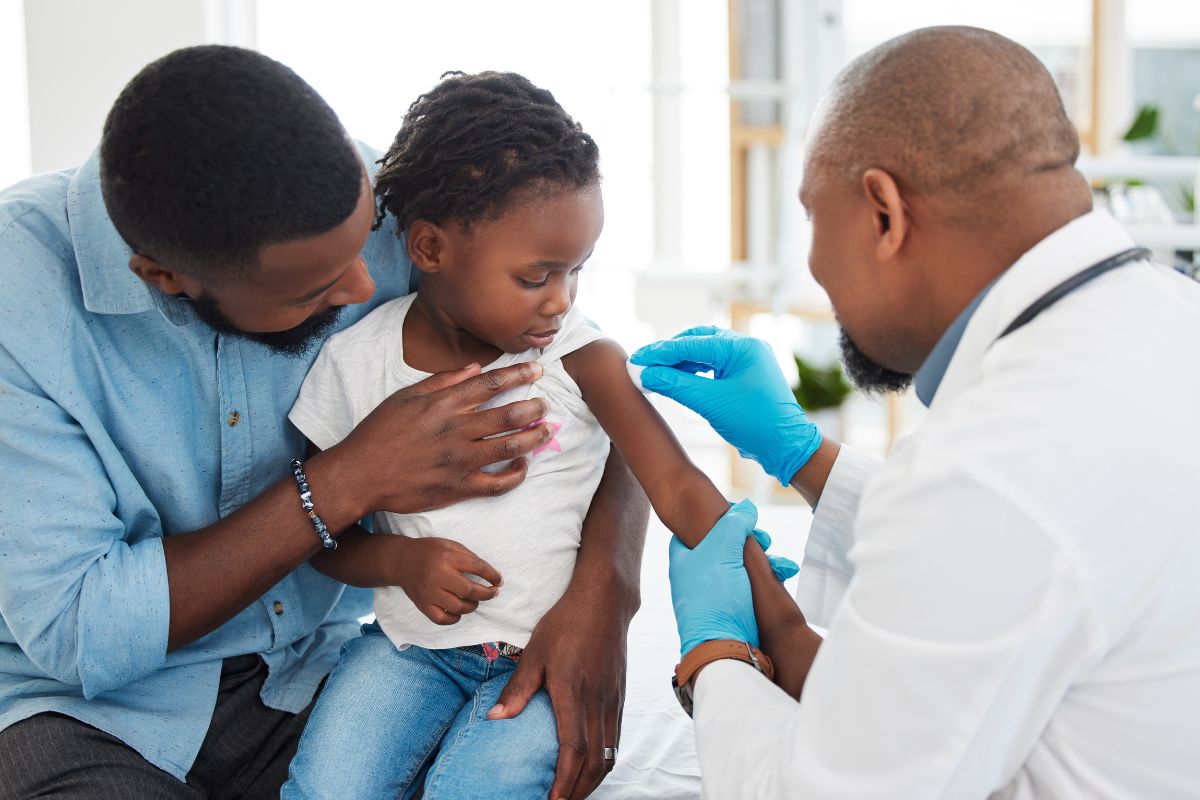
(Photo: Canva)
Measles cases are popping up across Canada, and with low vaccination rates and travellers returning from March Break, health officials are concerned this preventable disease may continue to spread.
“Measles is such a big concern because it is one of the most contagious viruses that we know of,” explains Janna Shapiro, a postdoctoral fellow at the CVPD. “That means that in a population that doesn’t have a lot of immunity, a few cases can quickly grow into an outbreak.”
Health officials are urging Canadians to check their vaccination status to ensure they have received the recommended doses of their measles vaccine. And Shapiro emphasizes that getting vaccinated not only protects individuals, but also those who cannot get vaccinated.
Why we’re still playing measles whack-a-mole
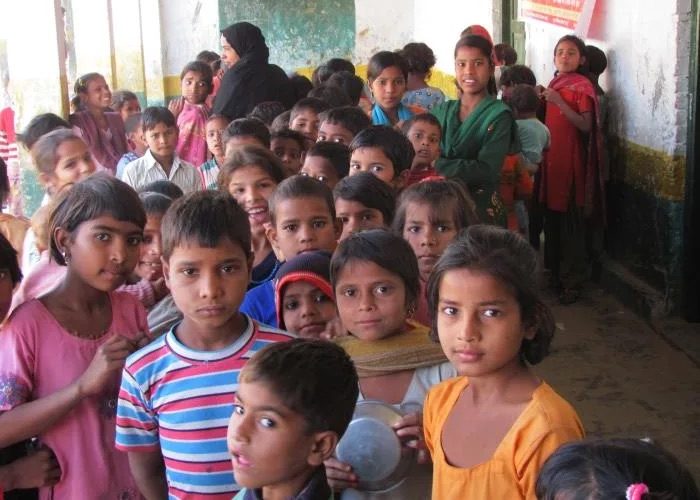
Children waiting to receive vaccinations in the northern Indian state of Uttar Pradesh. The measles vaccine saved an estimated 57 million lives between 2000 and 2022. (Alan Janssen, MSPH Public domain)
By Shelly Bolotin
Between 2022 and 2023, the World Health Organization reported a 45-fold increase in measles cases in Europe. Outbreaks have since occurred across the UK, Europe, the Americas, Africa and Asia, prompting public health officials to issue urgent calls for vaccinations.
This recent resurgence of measles threatens to undo decades of progress made in controlling and eliminating the disease since the vaccine became available 60 years ago. Turning around this trend — even wiping out measles entirely — is not impossible, but it will require real commitment and learning from past mistakes.
Got questions about vaccines for kids? A new phone line offers answers
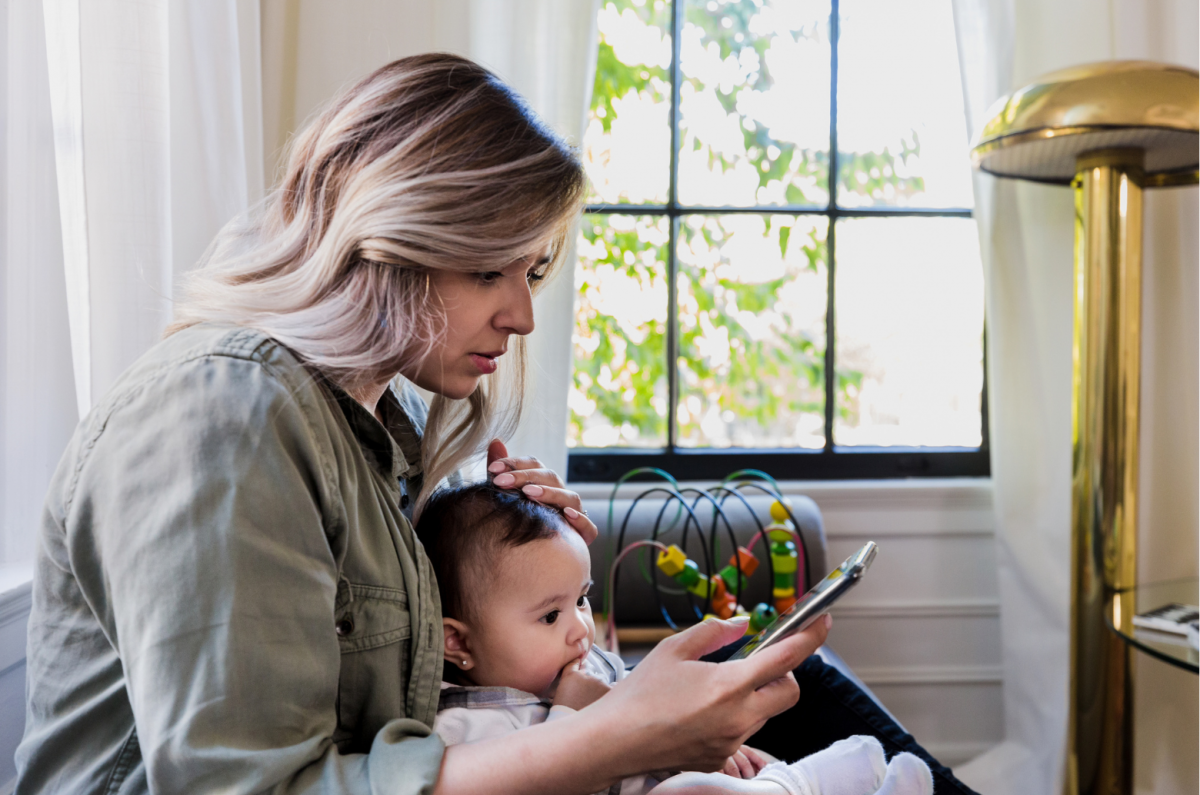
(Photo: Canva)
For the past few years, questions about vaccines dominated headlines and internet searches. Is this vaccine safe? Will it work? Who needs to get vaccinated?
Shaun Morris and Pierre-Philippe Piché-Renaud, paediatric infectious disease physicians at The Hospital for Sick Children (SickKids) and members of the Centre for Vaccine Preventable Diseases (CVPD) at University of Toronto’s Dalla Lana School of Public Health routinely field these types of questions from parents and caregivers.
To help boost confidence in vaccination through easy access to reliable, evidence-based information, Morris and Piché-Renaud have launched a new pilot project running until the end of March. The SickKids Vaccine Consult Service (VCS), part of a larger project funded by the Public Health Agency of Canada (PHAC), is offering a phone service staffed by nurses to answer caregivers’ questions about all paediatric vaccinations. The intent is to make vaccine information more accessible and ultimately, help parents make the best, most informed decision for their child, explains Piché-Renaud.
Infants are vulnerable to chickenpox earlier than previously assumed, new study finds
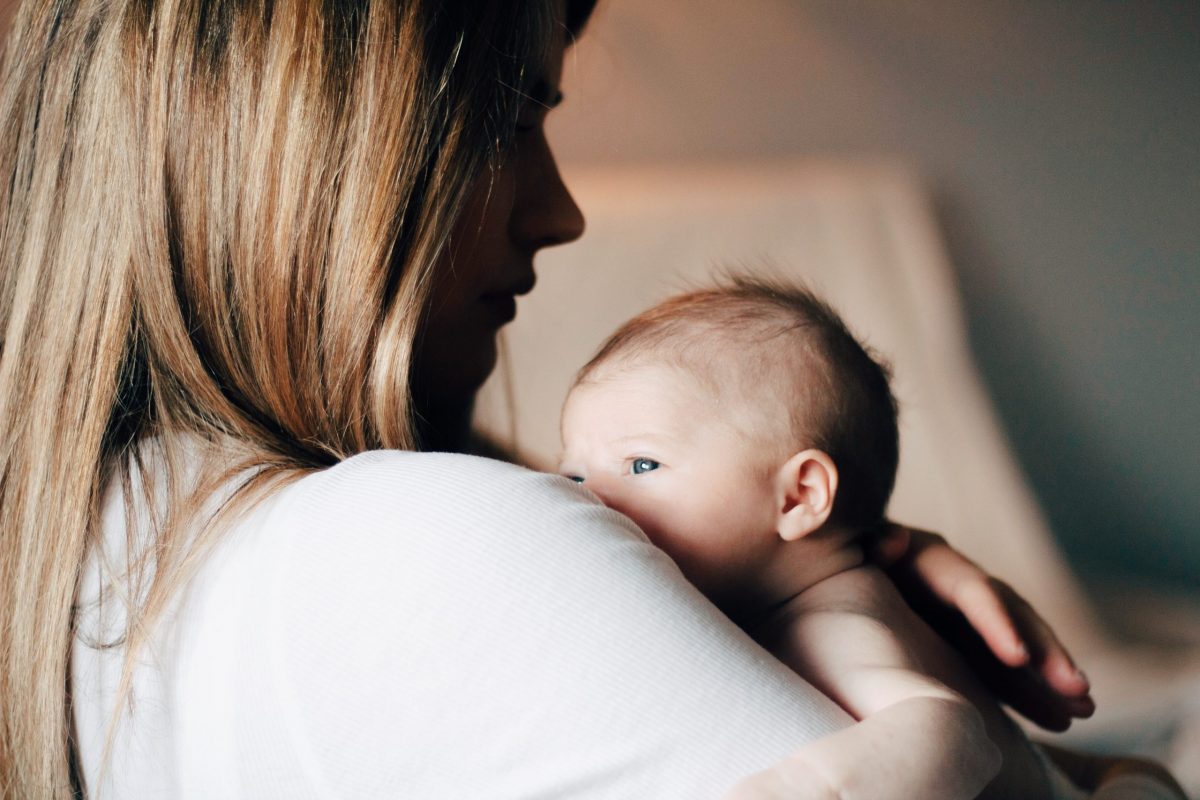
(Hollie Santos via Unsplash)
Infants are not protected against the varicella-zoster virus, the virus that causes chickenpox, for several months before they are eligible for vaccination, according to new research published in PLOS ONE. The study, led by Michelle Science and CVPD Director Shelly Bolotin, indicates that maternal antibody-based protection against chickenpox wanes faster than previously assumed.
“Our research found that that protection fades quickly, leaving infants vulnerable to infection for many months before they are eligible for chickenpox vaccine, which in Ontario is given at age 15 months,” says Bolotin. Approximately one third of infants in the study were susceptible to chickenpox by their second month of life. Almost all infants aged six months or older were susceptible to varicella infection.
COVID-19 vaccination during pregnancy leads to lower risk of neo-natal death, U of T researchers find
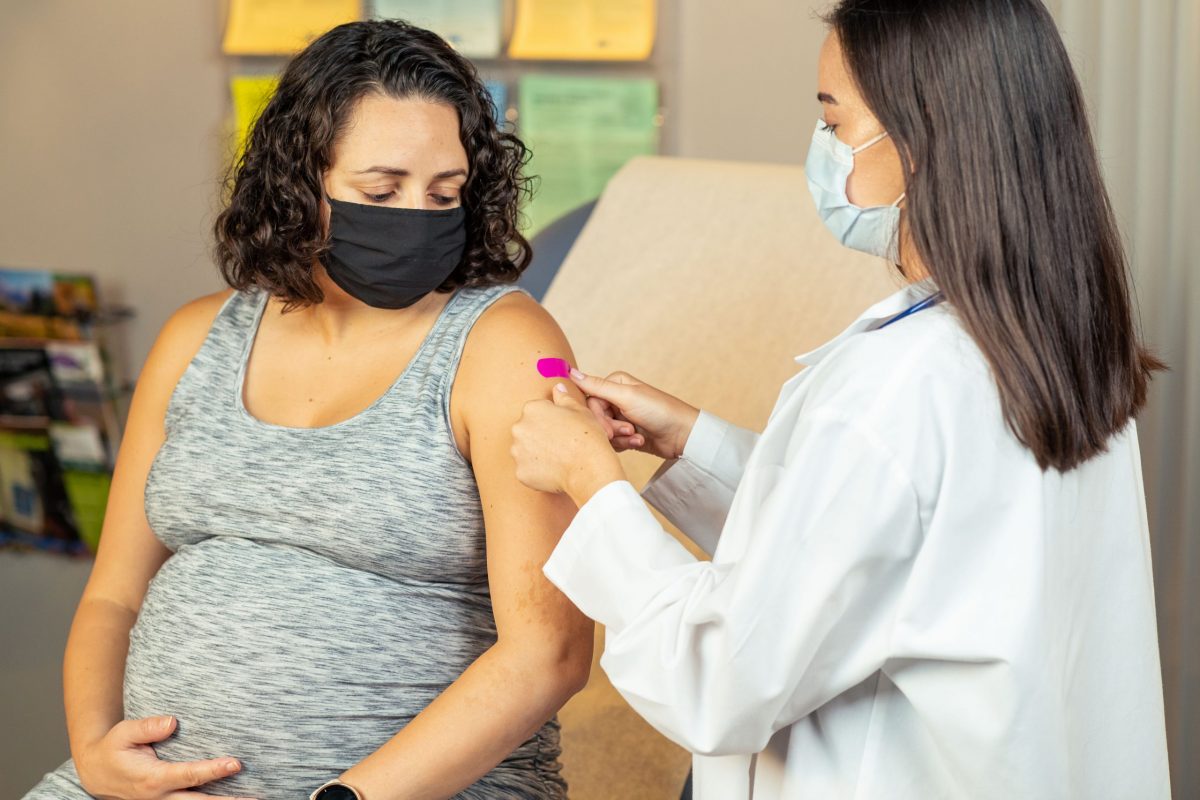
(Photo: Upsplash)
New research shows pregnant mothers who receive mRNA vaccines to prevent COVID-19 have infants and babies who are at lower risk of neonatal death and neonatal intensive care admission.
The research – published in JAMA Pediatrics this week – looked at more than 142,000 live births that happened in Ontario between May 2021 and September 2022.
“I think the findings provide reassuring data on the safety of maternal COVID-19 vaccines during pregnancy, and how they affect newborns and infants,” said Sarah Jorgensen, a PhD candidate in Temerty Faculty of Medicine’s Institute for Medical Science, and first author on the study.
Jorgensen said the study’s results are notable for pregnant women who are contemplating vaccination.
The study also demonstrated that COVID-19 vaccination during pregnancy also led to a lower risk of severe neonatal morbidity, which is when infants who are 28 days old or less have severe medical conditions like seizures, sepsis or a need for respiratory support.
Jeff Kwong, a professor with Temerty Medicine’s Department of Family and Community Medicine and associate director of Centre for Vaccine Preventable Diseases (CVPD) at the Dalla Lana School of Public Health, was the senior author on the study.
What you need to know about the 3 fall vaccines, according to U of T experts

(Photo: NIAID)
Last year, surging RSV infections among children, COVID-19 variants and flu season caused what health experts termed a ‘triple-demic,’ pushing adult and pediatric hospitals beyond capacity. Shelly Bolotin, director of the Centre for Vaccine Preventable Diseases (CVPD) and a member of the Emerging and Pandemic Infections Consortium (EPIC) at the University of Toronto, says it’s “quite possible” these viruses could overlap again this year.
To learn more, we spoke with Bolotin, Shaun Morris, a pediatric infectious disease physician at the Hospital for Sick Children, and Allison McGeer, an infectious disease specialist at Toronto’s Sinai Health. Morris and McGeer are both members of CVPD and EPIC and faculty members at U of T’s Dalla Lana School of Public Health and Temerty Faculty of Medicine. Here is what these U of T experts want Canadians to know about the RSV vaccines, the new COVID-19 vaccine, and this year’s flu vaccine.
This AI will help us get ahead of the next pandemic
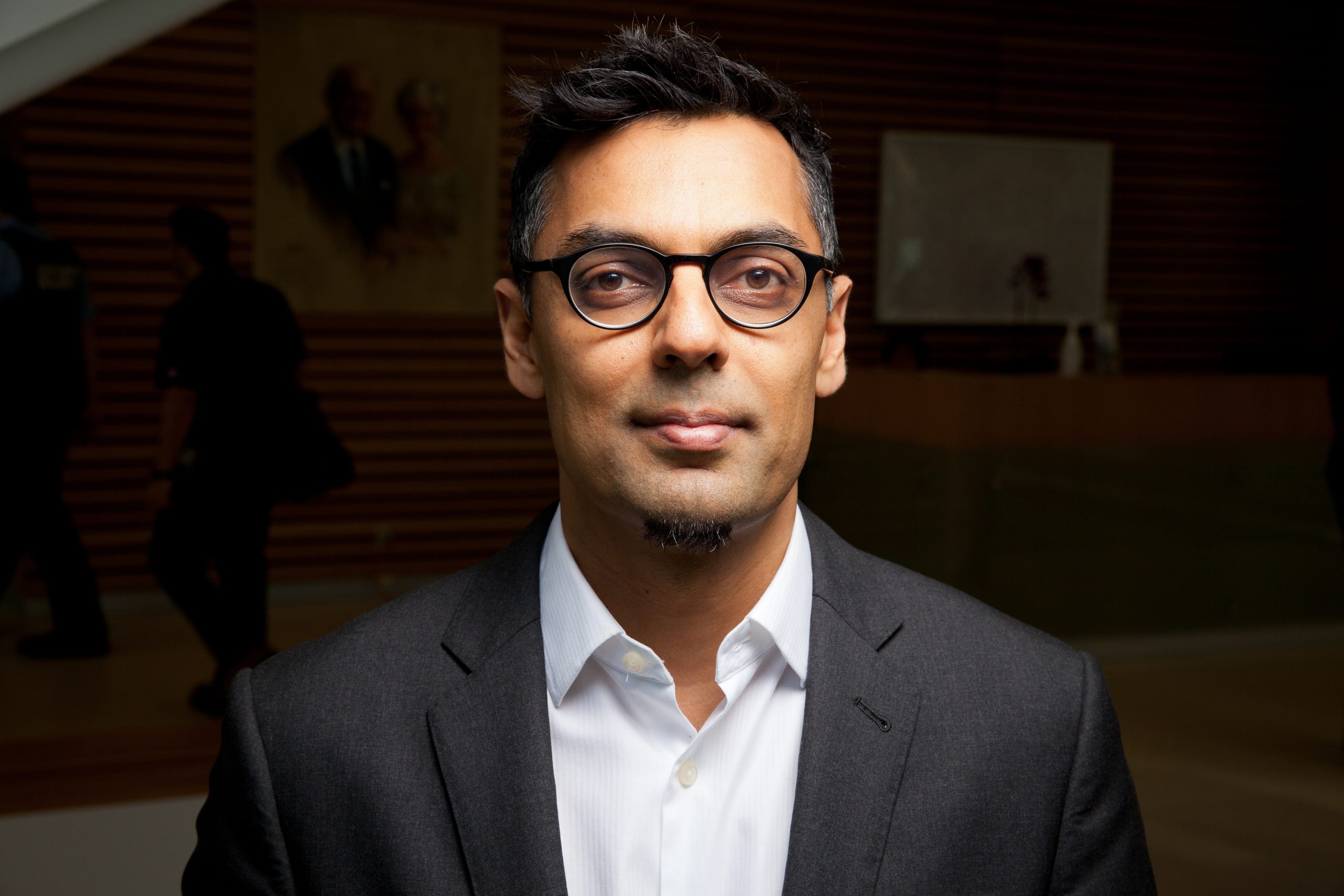
(Photo: BlueDot)
It seems appropriate that the Toronto offices for Kamran Khan’s BlueDot, which uses artificial intelligence to flag potential infectious disease outbreaks around the world, are located at the edge of Lake Ontario. Similar to a lighthouse, BlueDot signals when there’s danger ahead.
“We use the internet as a medium for surveillance to detect early signals of outbreaks anywhere in the world before they’re officially reported by public health agencies,” explains Khan, a professor of medicine in the Division of Infectious Diseases and the Dalla Lana School of Public Health at the University of Toronto and a member of the Centre for Vaccine Preventable Diseases. He breaks BlueDot’s work down into three key components: identifying threats early, rapidly assessing their risks and likely trajectories, and helping organizations to turn these insights into swift action.
“The whole purpose here is to compress time, because ultimately, time is the enemy when you’re dealing with an outbreak,” he says.
Read more
U of T Experts Help Ontario Science Centre Bring Vaccine Science to Life

“Fun” is not a word people typically associate with vaccines. The Ontario Science Centre wants to change that with new exhibits that invite visitors to see, touch, and — at times — walk through vaccine science.
“We don’t want to just tell people [about vaccine science], we want them to experience it, we want them to discover it, we want to spark their curiosity, we want them to ask questions,” says Ontario Science Centre researcher and programmer Raluca Ellis, a University of Toronto alum.
The exhibits, which opened in April and will be in place for at least five years, encourage visitors to explore a topic that has dominated headlines for the past three years but has also been muddled by disinformation. Ellis and her team worked with around dozens of experts — including members of Centre for Vaccine Preventable Diseases (CVPD) at the Dalla Lana School of Public Health — to develop the interactive stations that explore key questions about vaccines.
Read more
This U of T Researcher Is Helping Parents Prepare

(Photo: NIAID)
RSV researchers have been waiting for this moment for decades. Two new ways to protect children from respiratory syncytial virus, better known as RSV, are on the verge of becoming available in Canada.
Even though the majority of children will get infected by age 2, “most parents do not know about RSV,” says Centre for Vaccine Preventable Diseases member and Dalla Lana School of Public Health Assistant Professor Tiffany Fitzpatrick. She’s heard from parents who only learned about the virus — which has a similar seasonal pattern to the flu and symptoms like coughing, wheezing, and fever— after their child caught it. Although most cases are mild, RSV can lead to more severe illness like pneumonia, and is the leading cause of infant hospitalization in Canada and many other countries.
Health Canada is in the process of approving more immunization options to protect children against RSV— an antibody-based drug that may eventually be used to protect all newborns from severe RSV illness and a vaccine for pregnant people that would pass protection from parent to newborn. The potential impact of these new options, both for the health of Canadians and an already overburdened healthcare system, is massive.
“This could be really revolutionary,” says Fitzpatrick, who is also a scientist at Public Health Ontario. That is, as long as parents have the information necessary to make an informed decision about vaccination and understand the severity of RSV — a task that Fitzpatrick plans to address with her research recently funded by the Canadian Immunization Research Network (CIRN).
Read more
UNICEF Report Underscores Urgency of Childhood Vaccinations, U of T Researcher Says
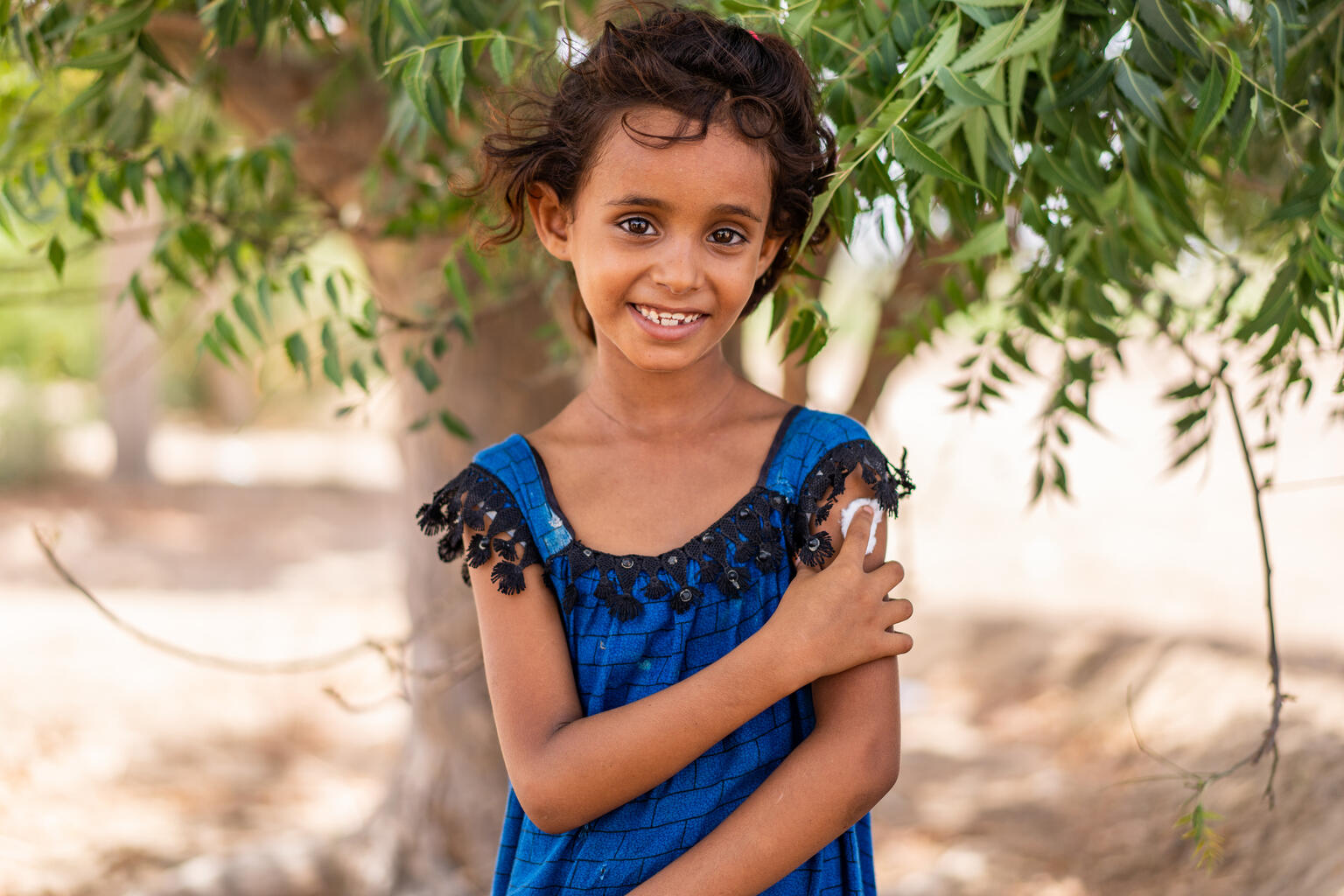
(Photo: UNICEF)
The pandemic drastically set back routine immunizations leaving millions of children in Canada and around the world vulnerable to preventable diseases, according to a new report from UNICEF.
“This underscores the urgency of this situation,” says Shelly Bolotin, Director of the Centre for Vaccine Preventable Diseases (CVPD) at the University of Toronto’s Dalla Lana School of Public Health. Her reaction to the new figures was disappointment. “I was hoping for more recovery.”
Routine childhood vaccinations, like measles, mumps, and rubella, save an estimated 4.4 million lives every year. But between stay-at-home orders, diverted and increased burden on healthcare resources, and growing vaccine hesitancy, vaccination have rates decreased to levels last seen in 2008, according to UNICEF’s 2023 State of the World’s Children report — raising serious concerns for the future.
Read more
Shelly Bolotin to Head Centre for Vaccine Preventable Diseases

Shelly Bolotin has been fascinated by infectious disease all her life – first the biology of it, and then the profound way social, economic and other human factors drive its spread.
“Viruses are smarter than we are — that blows my mind,” says DLSPH’s Associate Professor of Epidemiology. “But then we have this tool, vaccines, that isn’t always fancy or expensive but is one of the most effective public health interventions in the history of the world. Working to improve vaccine science allows me to make the biggest impact I can.”
Bolotin sees unprecedented opportunity in this moment to move vaccine science forward – when scientists have the world’s attention — using knowledge gained in the rapid development and deployment of COVID vaccines.